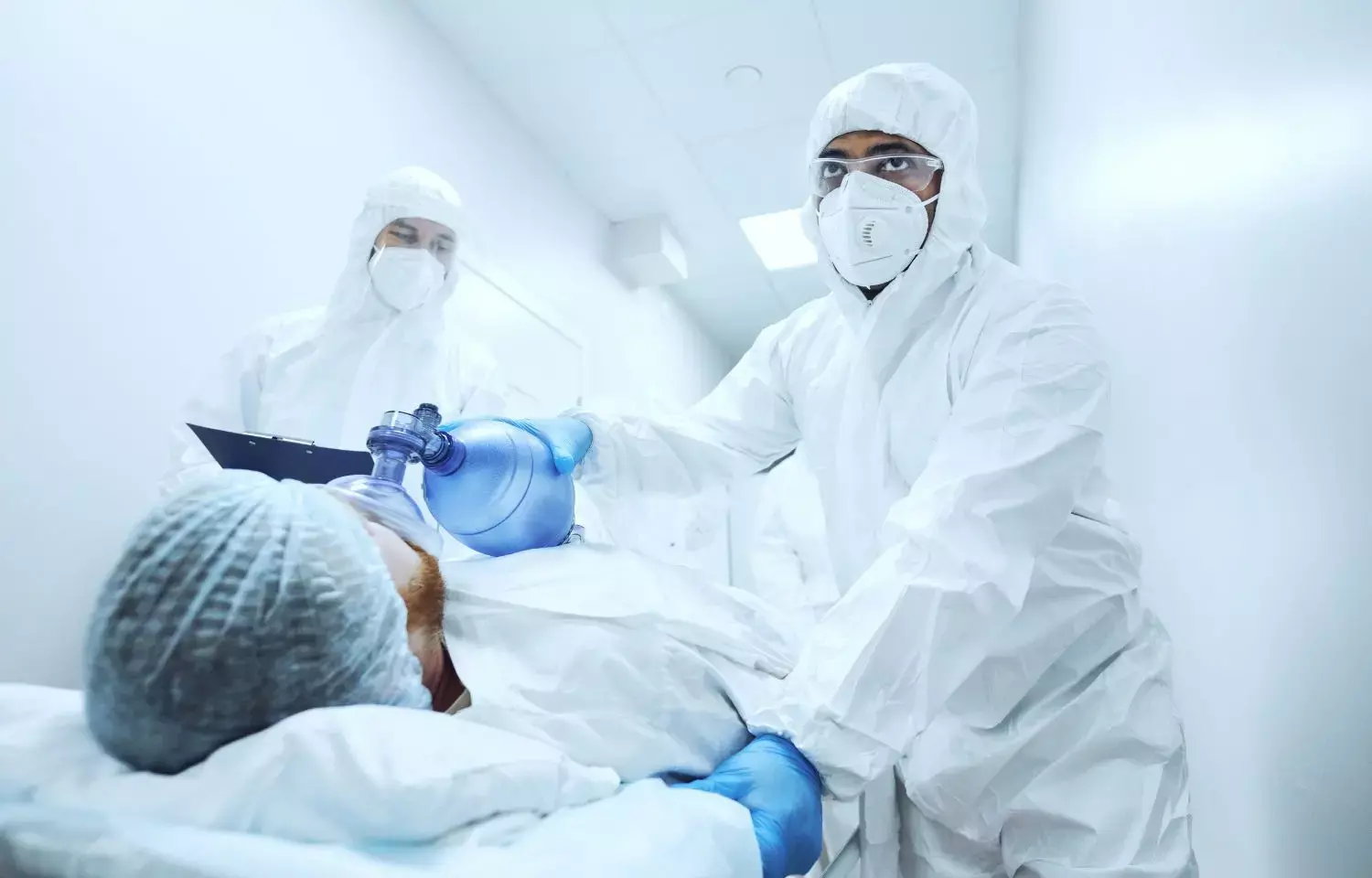- Home
- Medical news & Guidelines
- Anesthesiology
- Cardiology and CTVS
- Critical Care
- Dentistry
- Dermatology
- Diabetes and Endocrinology
- ENT
- Gastroenterology
- Medicine
- Nephrology
- Neurology
- Obstretics-Gynaecology
- Oncology
- Ophthalmology
- Orthopaedics
- Pediatrics-Neonatology
- Psychiatry
- Pulmonology
- Radiology
- Surgery
- Urology
- Laboratory Medicine
- Diet
- Nursing
- Paramedical
- Physiotherapy
- Health news
- Fact Check
- Bone Health Fact Check
- Brain Health Fact Check
- Cancer Related Fact Check
- Child Care Fact Check
- Dental and oral health fact check
- Diabetes and metabolic health fact check
- Diet and Nutrition Fact Check
- Eye and ENT Care Fact Check
- Fitness fact check
- Gut health fact check
- Heart health fact check
- Kidney health fact check
- Medical education fact check
- Men's health fact check
- Respiratory fact check
- Skin and hair care fact check
- Vaccine and Immunization fact check
- Women's health fact check
- AYUSH
- State News
- Andaman and Nicobar Islands
- Andhra Pradesh
- Arunachal Pradesh
- Assam
- Bihar
- Chandigarh
- Chattisgarh
- Dadra and Nagar Haveli
- Daman and Diu
- Delhi
- Goa
- Gujarat
- Haryana
- Himachal Pradesh
- Jammu & Kashmir
- Jharkhand
- Karnataka
- Kerala
- Ladakh
- Lakshadweep
- Madhya Pradesh
- Maharashtra
- Manipur
- Meghalaya
- Mizoram
- Nagaland
- Odisha
- Puducherry
- Punjab
- Rajasthan
- Sikkim
- Tamil Nadu
- Telangana
- Tripura
- Uttar Pradesh
- Uttrakhand
- West Bengal
- Medical Education
- Industry
Surgery within 8 weeks of recovery among COVID-19 patients not tied to adverse outcomes: JAMA

The findings of a research results recently published in JAMA Network shows that, regardless of when the COVID-19 infection occurred during the preceding 60 days, there was no correlation between recent COVID-19 infection and likelihood of unfavorable postoperative outcomes.
For patients who have just recovered from COVID-19, the American Society of Anesthesiologists issued suggestions on when to schedule elective surgery. The best time to have surgery in relation to immunization and infection has been the subject of several contradicting recent research. To determine the likelihood of unfavorable surgical outcomes among patients with recent COVID-19 infection, a study among a sizable veteran population was simulated. Those having infections in the 30 or 60 days before surgery, according to William O'Brien and colleagues, would be at higher risk than patients without infections.
This cohort research used pseudorandomization to compare the control (without a recent infection) to two mutually exclusive exposures in a target trial simulation (most recent infection in preoperative days 1-30 or 31-60). Patients who met the criteria underwent major surgery between January 1 and September 30, 2021. (Alpha and Delta strain prevalence). Reverse transcription-polymerase chain reaction testing was mandated prior to surgery, and immunization was advised for all participants. There were no oral outpatient treatments used. While the risk to participants was deemed to be low, the Veterans Affairs Boston institutional review board authorized both the research and a waiver of informed consent. The STROBE reporting manual was adhered to.
The end goal was defined as any of the following within 30 days of surgery: mortality, central nervous system outcomes, cardiac events, central nervous system outcomes, surgical infection, respiratory outcomes, or thromboembolic events. As a function of exposure group, perioperative variables (because they weren't known at time zero), and any imbalanced propensity score covariates after weighting, weighted logistic regression computed the odds ratio (OR) of any outcome.
The key findings of this study were:
In 123 hospitals, 29 093 patients had surgery in total. The mean (SD) duration of stay for the 15 553 surgical operations (53.5%) completed for inpatients was 5.0 (8.5) days.
Between infection and surgery, the median interval was 30 days (IQR, 13-44 days).
1337 of 28 635 patients (4.7%) in the group without COVID-19, 18 of 238 (7.6%) in the group with a 1- to 30-day infection, and 7 of 220 (3.2%) in the group with a 31- to 60-day infection experienced adverse postoperative outcomes.
The odds ratios (ORs) for postoperative outcomes were 1.40 in patients with infection in preoperative days 1 to 30 and 0.68 in patients with infection in preoperative days 31 to 60.
According to the most recent research, the choice to proceed should be made based on clinical judgment rather than a predetermined amount of time following infection.
Reference:
O’Brien, W. J., Gupta, K., & Itani, K. M. F. (2023). Estimated Risk of Adverse Surgical Outcomes Among Patients With Recent COVID-19 Infection Using Target Trial Emulation Methods. In JAMA Network Open (Vol. 6, Issue 3, p. e234876). American Medical Association (AMA). https://doi.org/10.1001/jamanetworkopen.2023.4876
Neuroscience Masters graduate
Jacinthlyn Sylvia, a Neuroscience Master's graduate from Chennai has worked extensively in deciphering the neurobiology of cognition and motor control in aging. She also has spread-out exposure to Neurosurgery from her Bachelor’s. She is currently involved in active Neuro-Oncology research. She is an upcoming neuroscientist with a fiery passion for writing. Her news cover at Medical Dialogues feature recent discoveries and updates from the healthcare and biomedical research fields. She can be reached at editorial@medicaldialogues.in
Dr Kamal Kant Kohli-MBBS, DTCD- a chest specialist with more than 30 years of practice and a flair for writing clinical articles, Dr Kamal Kant Kohli joined Medical Dialogues as a Chief Editor of Medical News. Besides writing articles, as an editor, he proofreads and verifies all the medical content published on Medical Dialogues including those coming from journals, studies,medical conferences,guidelines etc. Email: drkohli@medicaldialogues.in. Contact no. 011-43720751


